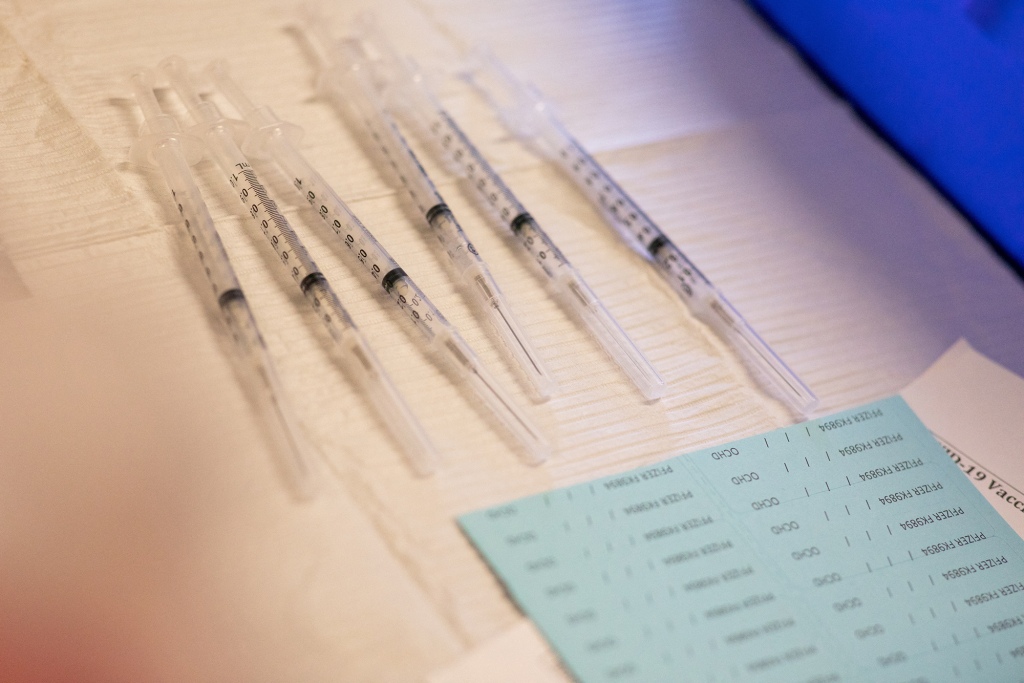More On: COVID booster shots
Before human testing is done, the latest COVID booster shots will be made available
A new report from the Wall Street Journal says that the Food and Drug Administration is likely to approve new COVID-19 booster shots this week, before the vaccines are tested on people.
The new boosters are like the COVID vaccines that are already available in the US, but they have a few small changes that protect people from the latest version of the Omicron variant.
Instead of waiting for data from testing on humans, the agency will use data from trials on mice, as well as real-world evidence of the safety of currently available COVID vaccines and test results from earlier versions of boosters targeting older strains, to evaluate the newest boosters, FDA Commissioner Dr. Robert Califf said.
"Real world evidence from the current mRNA COVID-19 vaccines, which have been given to millions of people, shows that the vaccines are safe," Califf said on Twitter. "From what we've learned in the past, we know that changes to strain can be made without affecting safety."
He also said that changing existing flu vaccines to protect against different viral strains doesn't require changing any of the ingredients and is a common thing the FDA does.

“FDA has extensive experience with reviewing strain changes in vaccines, as is done with the annual flu vaccine,” Califf said.
Both Moderna and Pfizer-BioNTech have sent the agency new COVID vaccine boosters for approval, and the FDA hopes to start a booster campaign this fall.
But some health experts are worried about the decision to give out the shots before they have been tested on people.
Two experts wrote an opinion piece in June asking the FDA not to rush the release of the new shots.
One of the authors, Paul Offit, told the Journal, "I'm uncomfortable with the idea that we would move forward, that we would give millions or tens of millions of doses to people, based on data from mice."
Offit, who is an FDA adviser and runs the Vaccine Education Center at Children's Hospital of Philadelphia, doesn't think it's fair to compare flu shots and COVID-19 shots because the mutations and levels of protection are different.
The FDA will not hold another meeting to get advice from advisors on the approval of vaccines, like it did in the past.
Califf said that at a meeting in June, advisors voted "overwhelmingly" to add an omicron part to the COVID-19 boosters.
"The agency feels good about the long talk that took place in June," he said.
COVID-19 vaccines on the market now are not as effective against newer strains of the virus, like the newest Omicron subvariant BA.5.
According to the Journal, both Pfizer and Moderna said that the latest data shows that the new shots are safe and work.
Several experts say that the newer versions only have very small changes to protect against new variants. Also, testing of the earlier versions made by the two companies to fight earlier strains has shown that they work and are safe. In the U.K., one of these shots has already been given the OK.
Moderna has already started testing the newest subvariant-targeting vaccine on people, and Pfizer plans to do the same this month. However, the results won't be available until after the vaccines are made available to the general public.
"Thank you very much, if we waited for clinical trial results, we'd get them in the spring. William Schaffner, a professor of medicine at Vanderbilt University Medical Center, told the Journal, "It takes time to do clinical trials." "This is just a new version of the vaccine we used before."
--------












